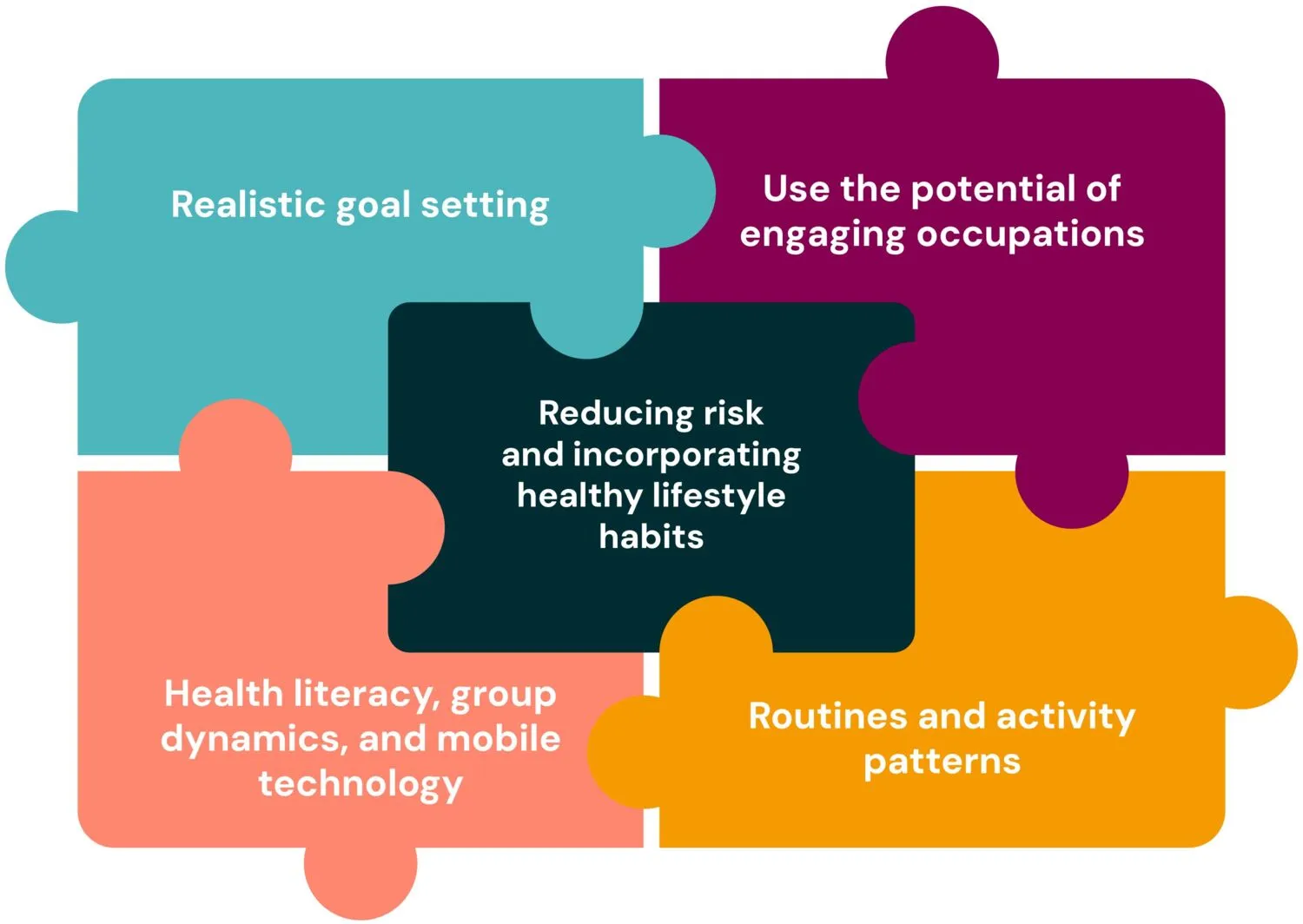Our research
- Focuses on everyday activities as goals and means to promote health at individual, group and community level.
- Considers that the activities a person does in their everyday life can take different forms depending on the person's situation and the conditions for engaging in an activity in different arenas (for example work, school, leisure), which also has implications for health.
- Has the goal of contributing with knowledge about everyday activities as a basis for developing and evaluating efforts and interventions of great importance to society.
- Has the goal of promoting conditions for equal participation in everyday and health-promoting activities for good health.
Our research is characterized by
- Interventions developed through the inclusion of and collaboration with people and groups at risk of physical or mental illness, including those in areas of low socio-economic status.
- Interprofessional collaboration around common and socially relevant research challenges.
- Innovative combinations of methods that include participatory methods.
- Interventions developed to promote collaboration between relevant stakeholders (for example within Health care, the Social Insurance Services, municipalities, communities, schools, workplaces, patient organizations).




